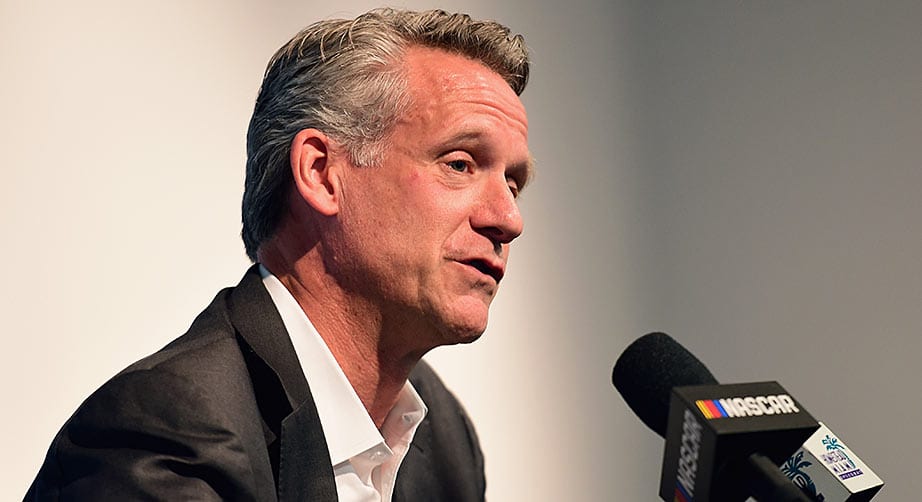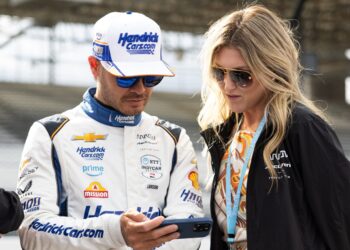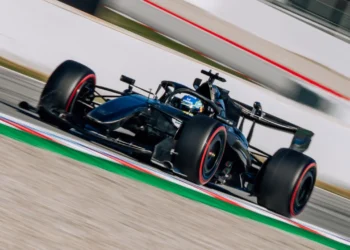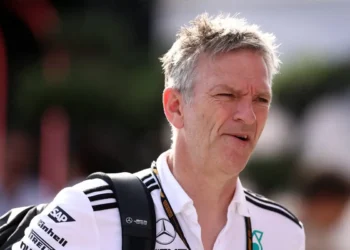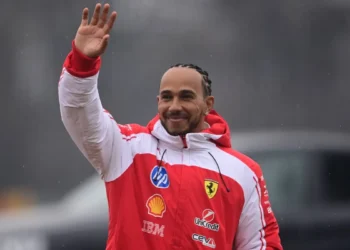NASCAR President Steve Phelps has reinforced the sport’s commitment to fairness and safety, rejecting the notion that NASCAR is a “demolition derby” following the controversial finish at Richmond Raceway, where Austin Dillon’s victory was stripped due to his aggressive moves on the final lap.
The incident occurred when Dillon, who had been leading in the closing stages, found himself in a heated battle with Joey Logano and Denny Hamlin during the overtime finish. After Logano edged ahead in Turns 1 and 2, Dillon retaliated by spinning Logano in Turn 3 and then right-hooked Hamlin in Turn 4 to clinch the win. However, after a three-day review, NASCAR penalized Dillon, stripping him of the victory and docking 25 points from both the drivers’ and owners’ standings. Additionally, Dillon’s spotter, Brandon Benesch, was suspended for his radio communication during the incident, though his suspension was later reduced to one week.
“If we hadn’t penalized him, I think what we would see over the next 12 weeks would be significantly different,” Phelps explained during an interview on Kevin Harvick’s podcast on Fox Sports. “We just can’t have it. It really comes down to: what do you want your sport to be? And that’s why I think we ruled the way we did because we’re not demolition derby. We’re just not.”
The decision to penalize Dillon was upheld by the National Motorsports Appeals Panel, despite an appeal from Richard Childress Racing, who argued that the penalty didn’t align with the facts presented. Childress has announced a final appeal, set to be heard on Monday morning.
Phelps acknowledged that NASCAR’s officials, led by Elton Sawyer, are responsible for making tough calls, often under intense scrutiny. “We don’t want to penalize drivers. We don’t want to have cars not pass tech. All of that, we don’t want,” Phelps said. “But there is a responsibility, if you’re going to be fair about the rules that you’re going to put in place and then officiate, that you have to do it with the utmost integrity.”
The review process for the Richmond incident involved a thorough analysis by NASCAR’s competition department before the final decision was escalated to NASCAR’s upper management, including Phelps, NASCAR chairman and CEO Jim France, and COO Steve O’Donnell. Phelps noted that unless there is a significant discrepancy in the decision, it is not overturned.
Phelps also addressed the challenge of defining where the line is in terms of acceptable driving behavior. “The difficulty as it relates to this specific incident, I’ve heard from drivers over the years, ‘I don’t know where the line is. Tell me where the line is. Can you show me the line?’” Phelps said. “I can’t show you the line, but you will know when it’s been crossed.”
In the case of Dillon, Phelps emphasized that the data clearly showed a line was crossed when Dillon hooked Hamlin, resulting in one of the hardest hits Hamlin has experienced in the Next Gen car. “There was a line that was crossed, in our opinion,” Phelps concluded.
With Dillon’s postseason hopes now hanging in the balance, the upcoming final appeal will be crucial. If the penalty is upheld, Dillon will need a win at either Daytona or Darlington to secure his spot in the playoffs, adding further drama to an already intense NASCAR season.
Photo from Nascar.com

